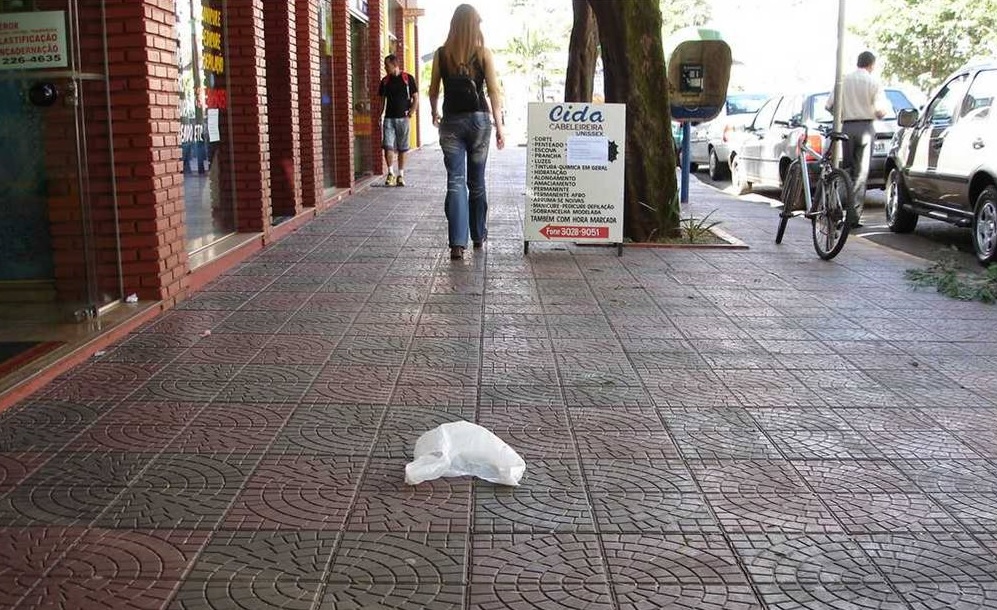Entrevista concedida pela FUNVERDE para a revista HM! sobre as malditas sacolas plásticas de uso…
Linpac lança filme oxibiodegradável com a demanda do mercado
Linpac lançou um filme de polietileno oxibiodegradável em resposta às preocupações dos consumidores e do varejo em relação aos resíduos de embalagens.
A empresa britânica afirmou que sua película aderente de Polietileno OxoLIN degradável foi a mais recente adição à sua gama e é adequado para qualquer produto alimentar. Informaram que o filme vai reduzir o impacto ambiental do lixo e ajudar a resolver o mal-estar crescente com a quantidade de embalagens que vai para os aterros.
Linpac destacou que a introdução do filme foi uma decisão comercial baseada particularmente na demanda, tanto dos seus clientes e do mercado.
“Linpac tem respondido às necessidades específicas dos clientes”, um porta-voz da empresa disse a FoodProductionDaily.com. “Nós estamos fornecendo também produtos biodegradáveis e compostáveis, mas não estamos vendo a demanda significativa para este tipo de produto em na Europa “.
Propriedades
O filme oxibio tem o mesmo desempenho e propriedades como os outros filmes Linpac em termos de clareza e de resistência ao rasgo, disse a companhia. Disponível em rolos ou rolos de recarga, o filme está em conformidade com as Directivas da UE para plástico em contacto com os alimentos, bem como as diretivas de embalagens e resíduos de embalagens , acrescentou uma declaração Linpac.
O filme tem uma vida útil de mais de 12 meses, mas se degrada em uso após 1-4 anos.
Patrice Blayo, gerente de produto para filmes de estiramento na Linpac Packaging, disse: “A indústria alimentar tem vindo pedir uma película degradável para responder às preocupações ambientais. Nós respondemos criando OxoLIN e garantir suas propriedades com os elevados padrões já estabelecidos pela nossa gama de filmes stretch. Os aditivos foram cuidadosamente selecionados para garantir que a performance do filme não seja afetada.”
Fonte – Food Production Daily de 28 de maio de 2010
***
Linpac launches oxo-bio film on market demand
Linpac has launched an oxo-biodegrable polyethylene-based film in response to retail and consumer concerns over packaging waste.
The UK company said its OxoLIN degradable PE cling film was the latest addition to its range and was suitable for any food product. It said the film would reduce the environmental impact of littering and help address growing unease over the amount of packaging going to landfill.
Linpac stressed the introduction of the film was a commercial decision based on particular demand both from its customers and the market.
“Linpac has responded to specific customer requirements,” a company spokesman told FoodProductionDaily.com. “We are also supplying biodegradable products, but we are not seeing demand anywhere in Europe for these in any significant volume.”
Properties
The oxo-bio film has the same performance properties as Linpac’s other films in terms of clarity and tear resistance, said the company. Available in either mother rolls or refill rolls, the film complies with EU plastic food contact directives, as well as packaging and packaging waste directives, added a Linpac statement.
The film has a shelf life of over 12 months but will degrade after use in one to four years.
Patrice Blayo, product manager for stretch films at Linpac Packaging, said: “The food industry has been asking for a degradable film to meet environmental concerns. We have responded by creating OxoLIN and ensuring its properties meet the high standards already set by our range of stretch films. The natural additives have been carefully selected to ensure the performance of the film is not affected.”
Oxo-bio debate
Oxo-degradable plastics are made of petroleum-based polymers – usually polyethylene – which contain additives. The oxo-biodegradation industry says its plastics “self-destruct” or biodegrade when they are exposed to UV irradiation or heat because substances such as cobalt, nickel and zinc are added to conventional plastics at the time of manufacture. These reduce the molecular weight of the material over a pre-determined period and they fragment – allowing them to be consumed by bacteria and fungi.
The technology has provoked heated debate with detractors questioning whether oxo-bio packaging does indeed biodegrade or merely break down into minute particles invisible to the naked eye, without alteration to their composition. Most recently, the UK’s Department for Environment, Food and Rural Affairs (Defra) raised concerns about their impact on the environment once they break down into smaller pieces. Research funded by the regulatory body challenged the environmental credentials of oxo-biodegradable plastics and said the materials are suitable for neither conventional recycling nor composting.
But the Oxo-Biodegradable Plastics Association (OPA) and UK producer Symphony have rejected such criticisms. They say the standards used to verify the biodegradability of its products are legitimate and that claims made by the industry are founded on solid science.




Este Post tem 0 Comentários